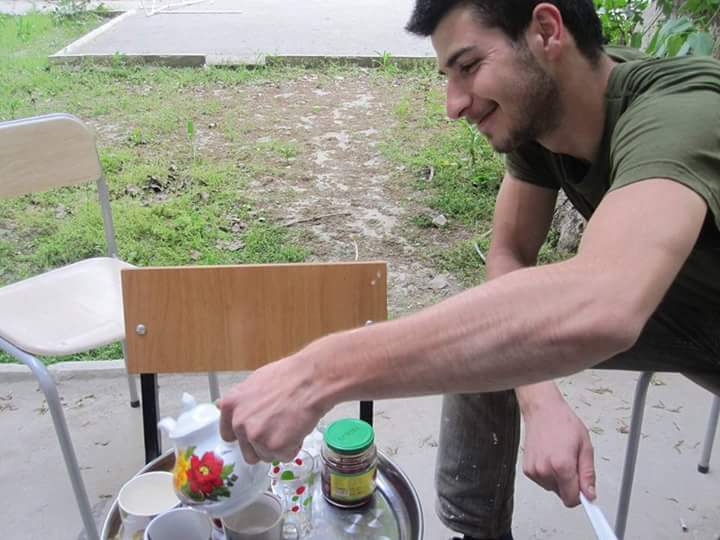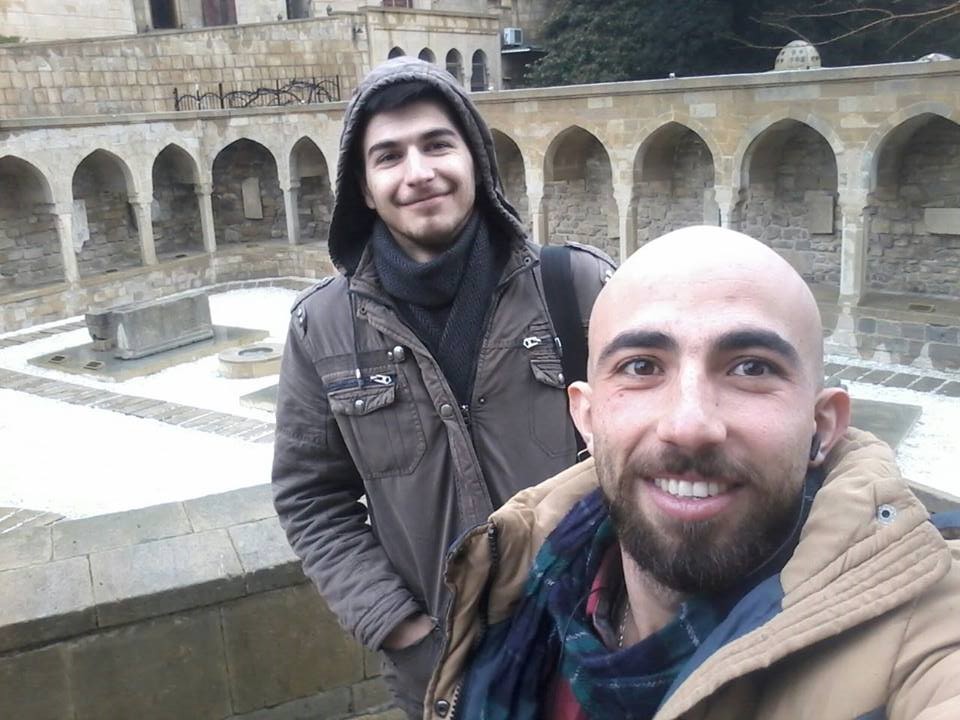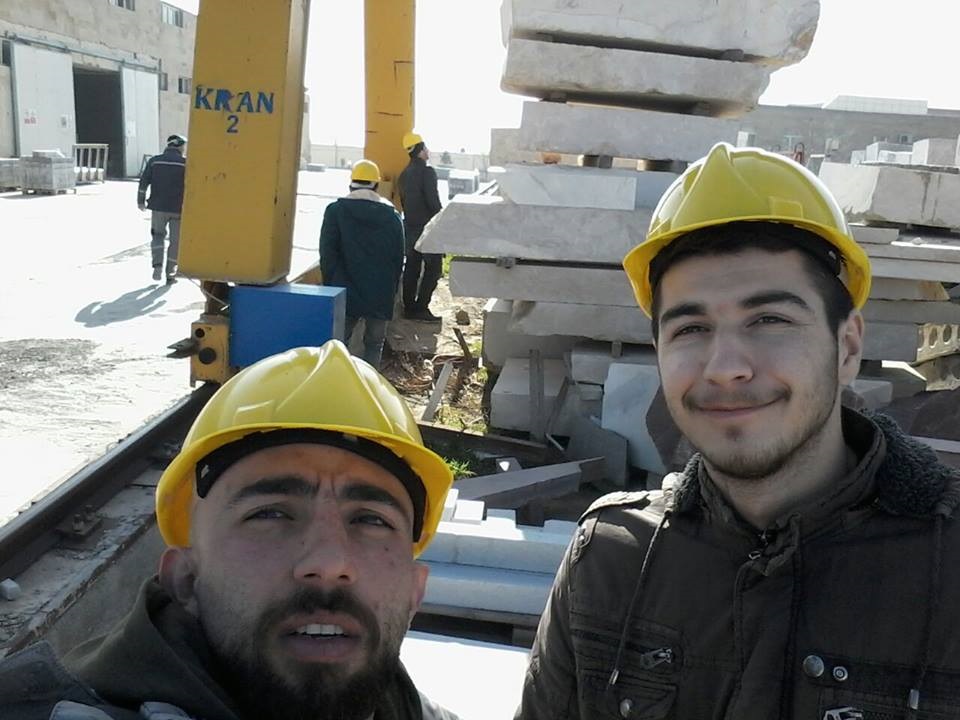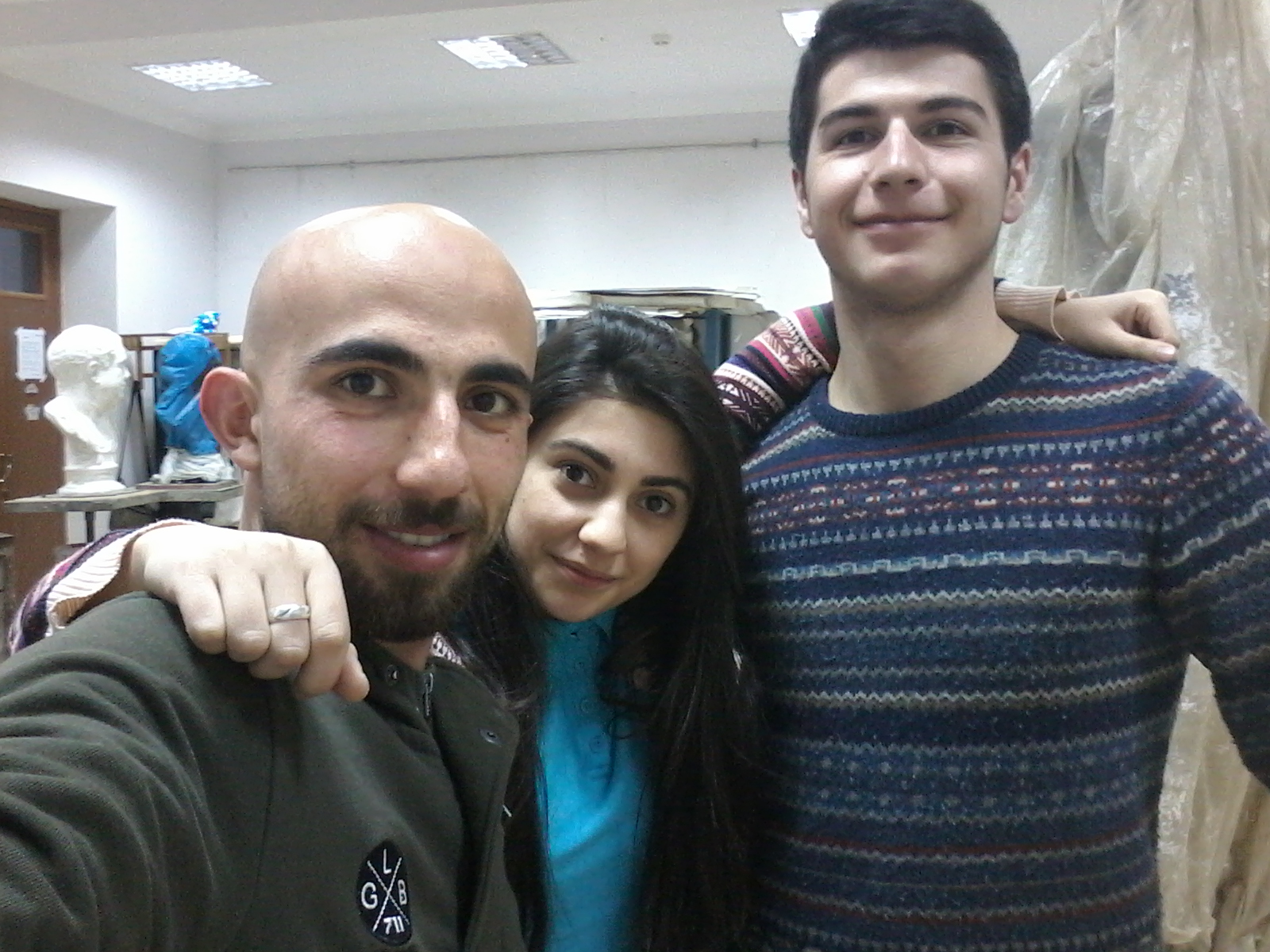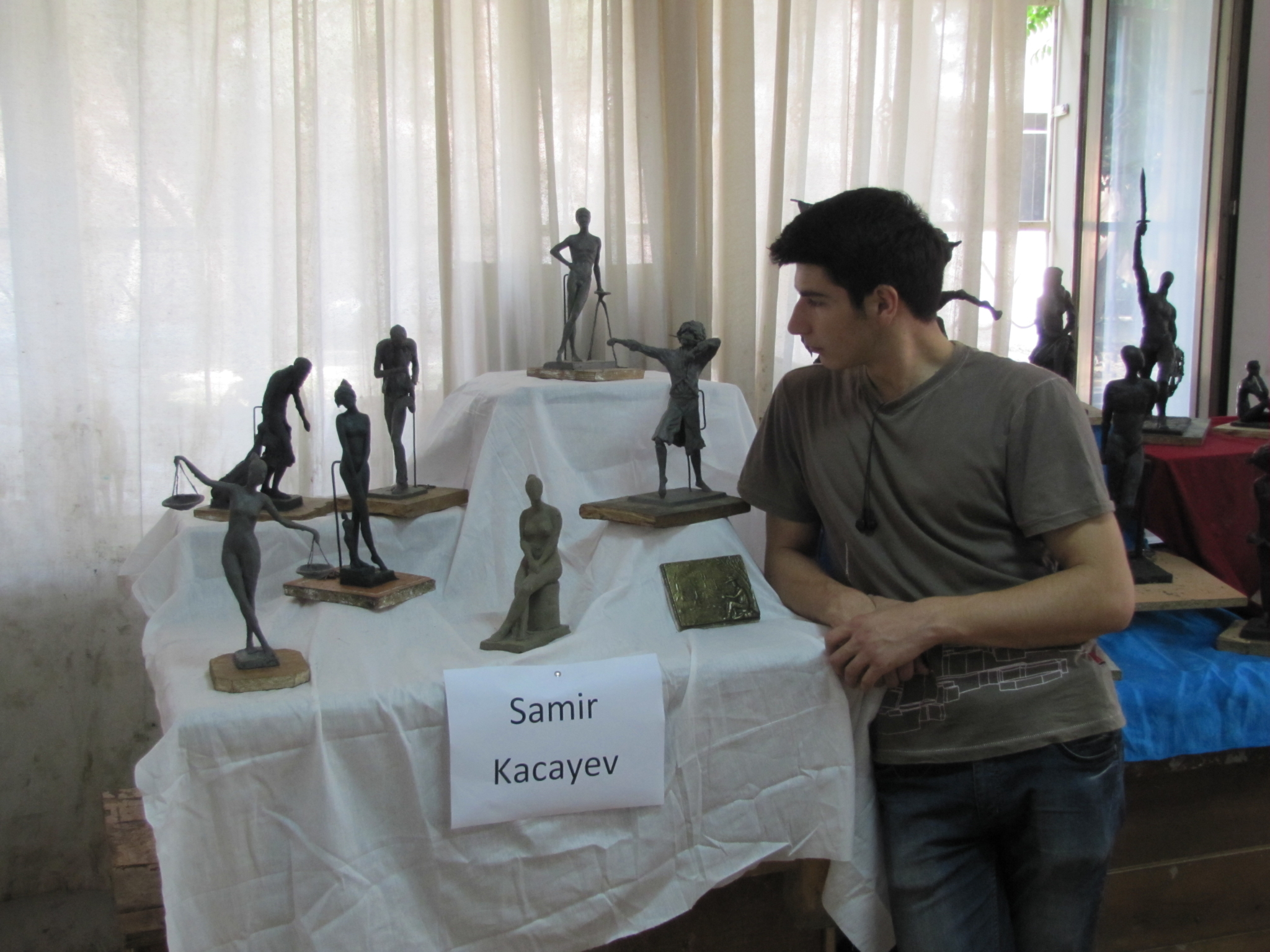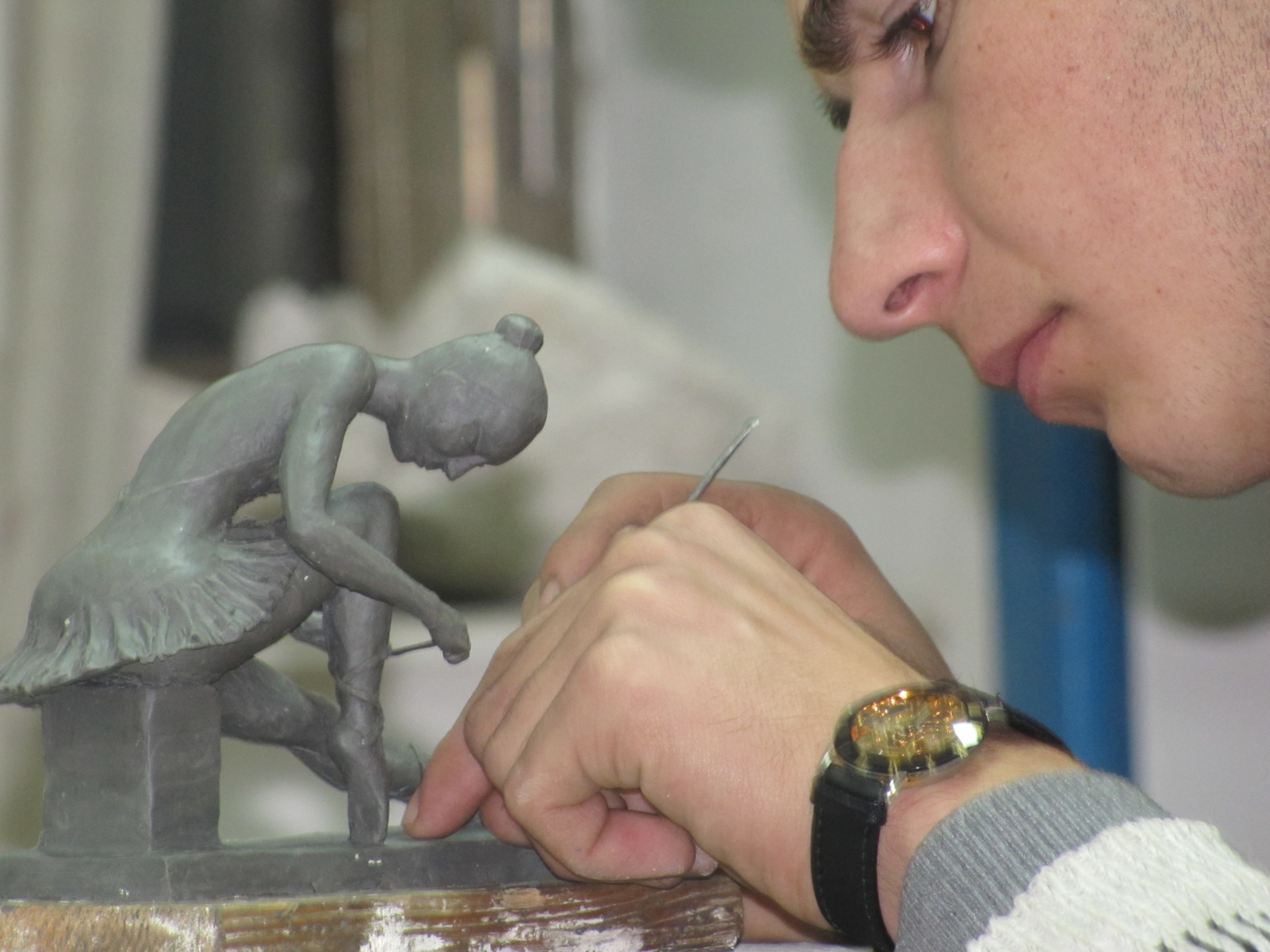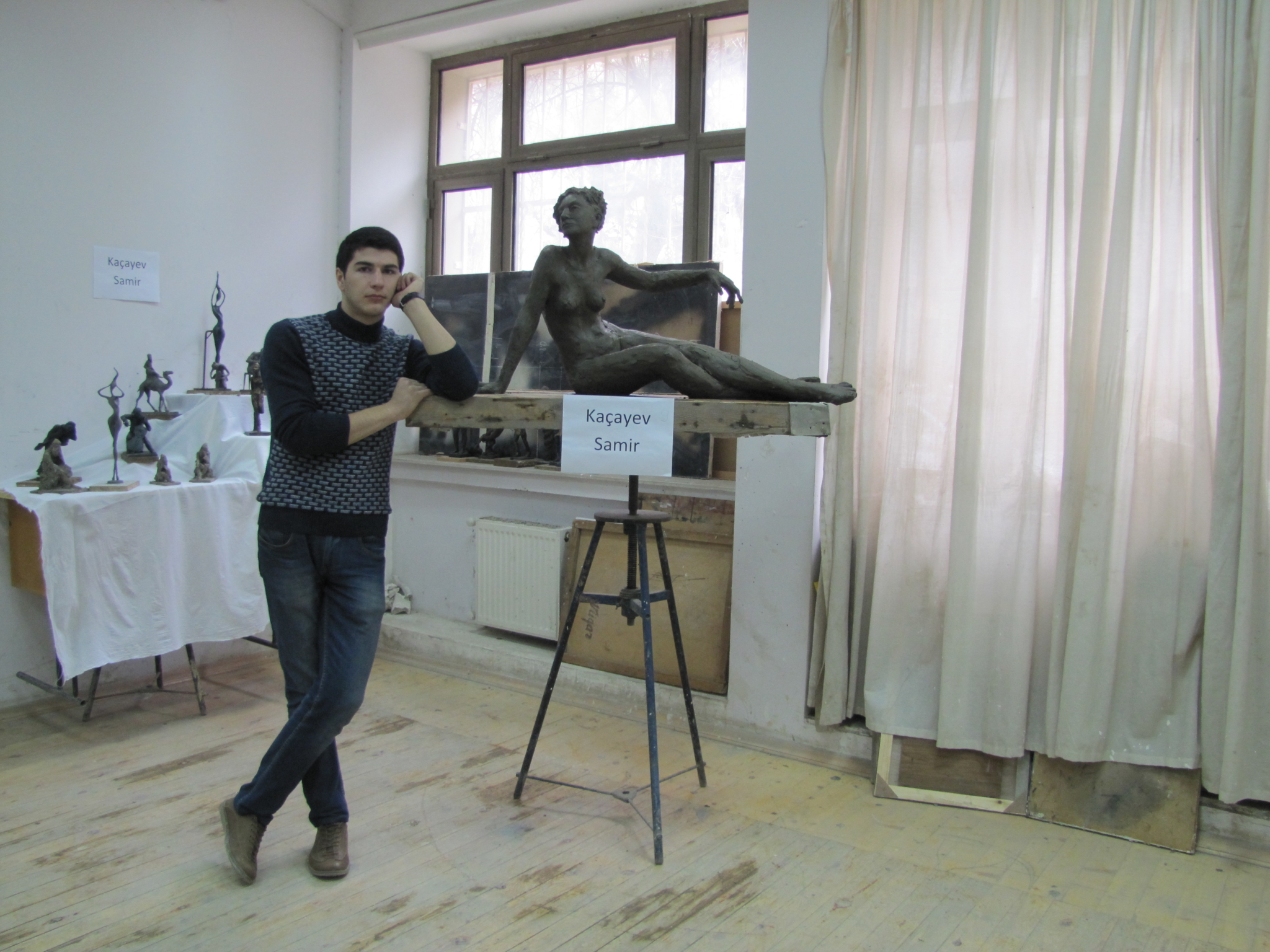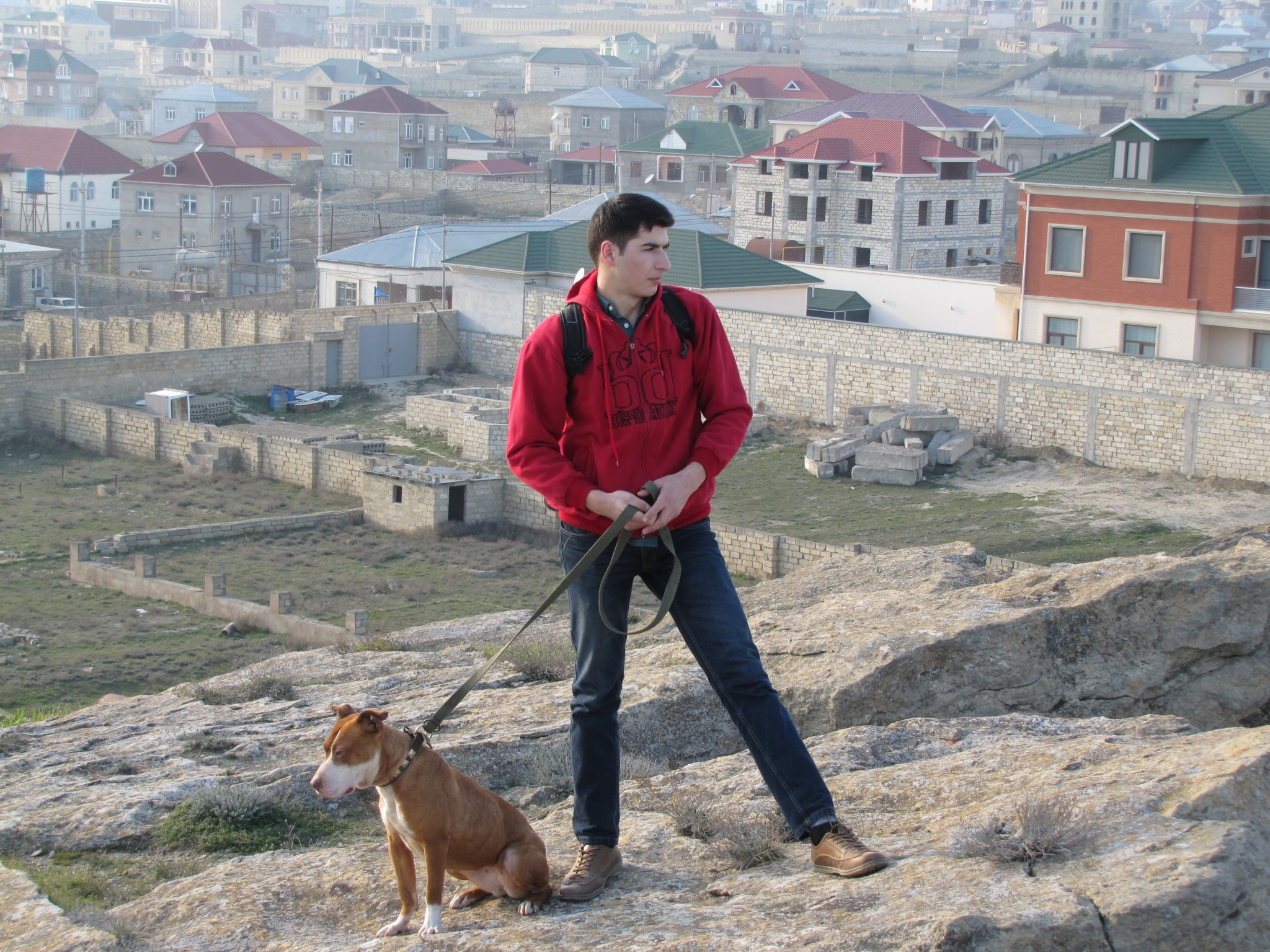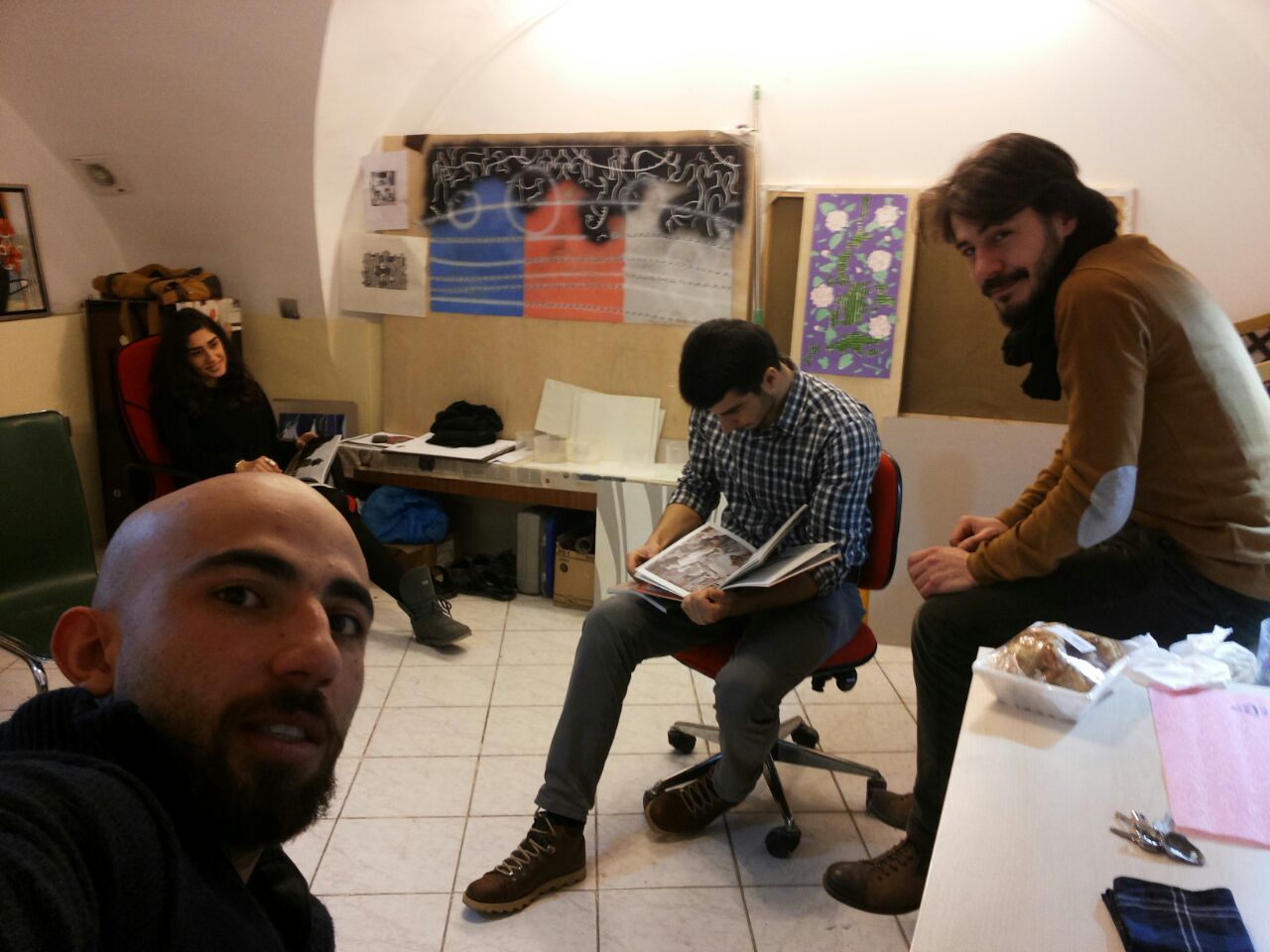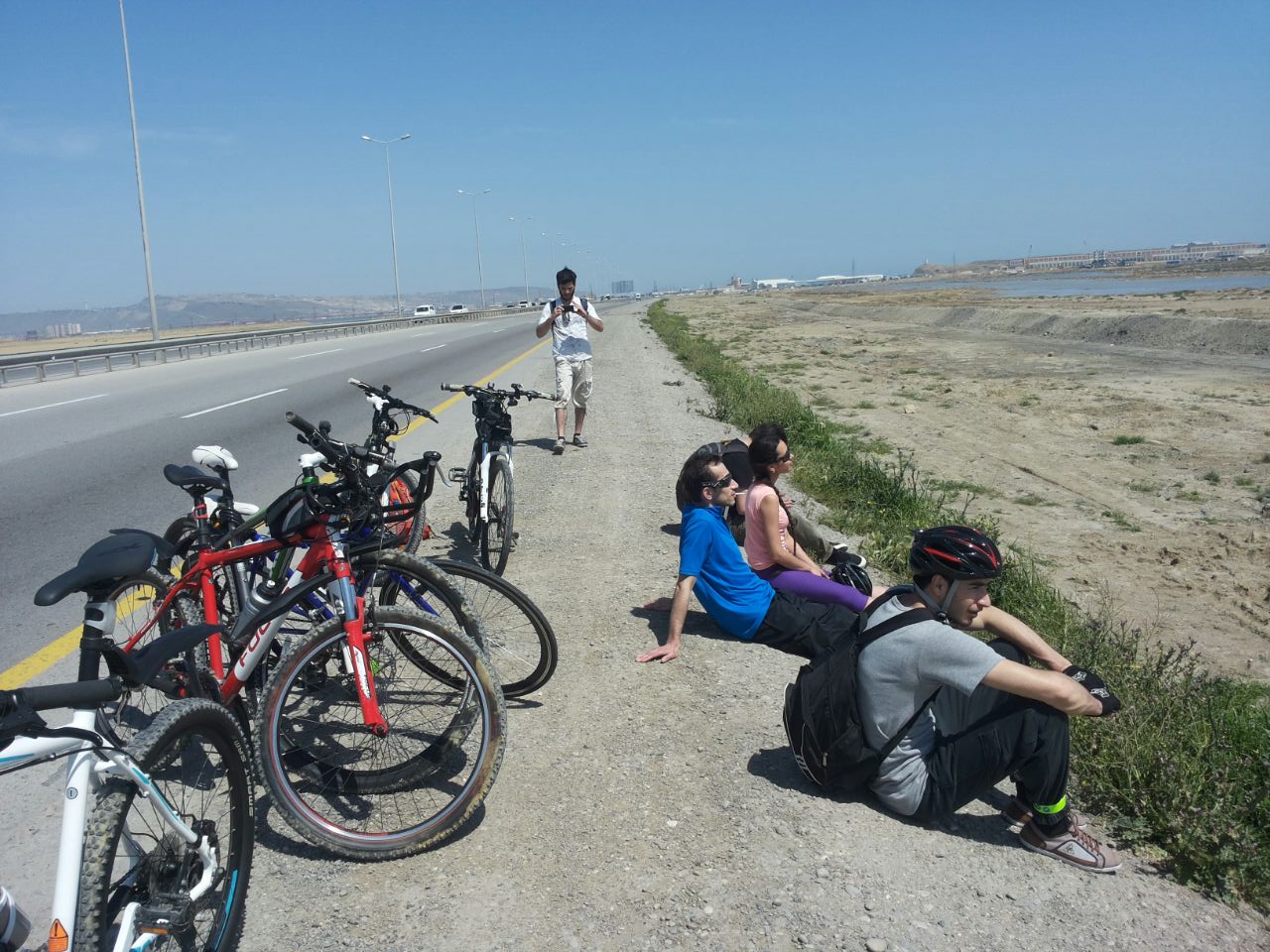My name is Samir
It’s me, Samir. Samir Kachayev. This letter will definitely be the longest letter I’ve ever written. I’m going to try and tell you about my whole life.
I was born in Shamakhi on 6 March 1994. As my father tells it, that day they took my mum from our village, Chukhuryurd, to the district hospital. My auntie – my father’s sister, thought it would be fun to test him. “Brother, you have another daughter.” I already had a sister, Sabina. Father replied “Well thank God – a girl! And it’s good she’s a girl – girls are children too! What’s wrong with her being a girl?” Then my auntie admitted that in actual fact he had a son, that is, me.
My Childhood
They say I was a very naughty child and a bit of a bully. I would take a stick and knock flowers and whole branches from trees. And then I’d get really upset when my mum would explain that trees are living things, that it hurts them and makes them cry when I hit them like that.
But more than anything I loved to throw stones. Quite a few neighbours’ windows suffered as a result. And this habit didn’t come to anything good.
I was three years old when, after arguing with my auntie, I threw a rock at her head. It cut her forehead, which started to bleed. I suddenly got scared and started calling out for my grandma to come help her. Sabina then ran to my father, who at that point was working in our garden, to tell him what I’d done.
Dad came home with a stick, and having told the others not to interfere, hit my hands so hard that I wouldn’t pick up a rock let alone throw one.
One time, before I’d started going to school, dad was doing something outside and I was hanging around irritating him. Dad gave me a slap, telling me to stop bothering him. Walking away I said “Dad, there’ll come a time, when I’ll grow up and you’ll get old”. “And, what?” he asked. “Then, you won’t be able to handle me. And you see this hammer here…” Dad replied, “then you probably understand why I hit you. I know that when you grow up I won’t be able to cope with you so I’m rushing to teach you something now”. Years passed before I really thought about what my dad had really taught me.
There were three years difference in age between my sister and I. We fought all the time, for no real reason: about our toys, notebooks, any nonsense. Mum and dad worried a lot, that we’d be like that for the rest of our lives, like cats and dogs. But then we became good friends. Now I love her to bits.
The year my sister finished school and started university I decided to get a summer job.
All the cattle graze together in the village. This means everyone takes their turn looking after the herd. If someone wants to miss their turn they can pay 20 manats and send someone else in their place. And that’s how I made money, looking after the herd, for, as they say, ‘a very inflated price’.
The family didn’t really need the money. My father was a hardworking man and we had all we needed. But when I told him I was going to get a job he didn’t object. He wanted me to get used to working. I worked a lot that summer and tried not to spend the money.
At home, they guessed what I would do with the money I saved. I ended up giving Sabina a phone as a gift on the day she found out she’d got into university.
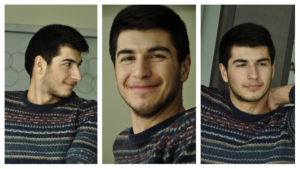
A serious child
At school, I was considered to be an obedient and responsible pupil. I think I learnt to be responsible after seeing how much effort my father put in to prepare me for school: months before I’d even started he taught me to read, write and count. My schoolteacher, Nelly Ivanovna was half German (and later emigrated there). Although she was a close neighbour, she never cut me any slack.
I studied hard until the sixth or seventh grade but then somehow lost all interest. Maybe because of that girl I was always sneaking a look at. I went to school only to see her, although when we met I had no idea what to do with myself. I finished school, but I couldn’t bring myself to tell her. I was too afraid. My friend Abid was the only one who knew.
Now I think it was for the best that she never knew and that it was all childish. When I heard she got married, I didn’t get upset: I was so busy that I didn’t have time to think what might have been.
Vet, barber or sculptor
Until I finished 9th grade, my parents worried that I would end up without a career or any prospects at all.
My auntie’s husband was sitting with us once and suggested I should try becoming a vet. I loved plants, animals and nature in general and agreed without hesitation. But then I failed the entrance exam by just a few marks and so my veterinary career finished before it had begun, leaving my father to worry even more.
Another time, my dad’s uncle (on his mother’s side) from Agsu came to stay. “Nephew, what are you worrying for?” he said to my dad. “It’s not like he’s run out of career options. Send him to a barber and let him learn how to cut hair and shave. Muslims have a lot of hair so he won’t go hungry.” My father loved the idea. He even bought me all the equipment I needed and I started practising. It actually didn’t go too badly and my dad became my first ‘client’.
But the search for career options didn’t end there. I was still at school and now had the option to be a barber in reserve.
Once, Father was sitting in his usual place in our garden. Not having anything else to do I was making a model of mickey mouse out of plasticine. Dad took a look and didn’t believe I’d done it all by myself. He took it apart and asked me to make another one – which I duly did. After that, dad started to pay more attention to my models. He went to Nelly Ivanovna’s son Ilgar for advice because he was a graduate of the art academy. He told me that I have talent and that I absolutely have to develop it.
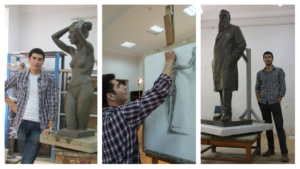
“Are you alive?”
I had to sacrifice going in on the last day of school because it was the last day to submit entry documents and I went to Baku. Abid and Sadig went with me. We did our best, though, to then make up for what we lost out on and went with the whole class to the woods to celebrate finishing school. Abid drove at the front of the convoy but it turned out that Abid’s driving wasn’t quite up to scratch. On a straight road, he managed to swerve into a ditch. For our messing about, we had to write off the car.
In our school years Sadig, Abid and I couldn’t be kept apart. One evening I was out cycling and the guys told me to get off because it was pitch black and I’d hurt myself. Coming down the next hill though, I went down at full speed and rode straight into a woman who’d just turned the corner. I didn’t manage to brake in time and we both went flying.
It turned out that she was a neighbour’s guest who’d come down from Moscow. I got very scared. Sadig and Abid came running and all I remember is how they picked up the woman and I kept repeating “Are you alive? Are you alive?”. She didn’t break anything and, to calm me down, she even told me that it wasn’t my fault – she had walked out onto the road.
My brand new trousers were ruined. “Mum – I ripped my trousers,” I said despondently after I’d come home. “It’s good that you’re ok, though,” she said.
Another Planet
However hard it was to say goodbye to the guys, I was very excited about my future prospects. But at that time, I just didn’t know how to deal with them. The arts academy usually only accepted students who’d finished the Azimzade Arts School, and having just arrived from Chukhuryurd, was terrified of being worse than the others.
The academy was like a different planet for me. And I discovered an inner-peace world I’d never known before. Within two years I had learned my craft so well I was enthusiastically sculpting as much as I could. We didn’t have as packed a schedule as at other universities and instead of lectures we’d have practical sessions.
All the same I wouldn’t come later than 9am and sometimes didn’t lift my head from working until 11 at night. When you begin sculpting, it’s hard to tear yourself away or take any breaks at all. Maybe it’s because of that that I managed to finish 30 sculptures, mostly from bronze. That’s enough for an exhibition.

Students at the Academy also weren’t like those at other universities. We didn’t go out much, we weren’t loud in town, and if we did go out we’d meet at the new excavations by the Maiden Tower and talk. But our favourite past time was drinking tea in the workshop. Of course, it was me who brewed the tea, with thyme, carnations, or dog-rose – I know my teas.
And I made new friends. At the beginning Anar and I became friends. Not only because he was ethnically Lezgian like me, but also because, like me, he liked peace and quiet. It was nice to spend time with Anar just in silence.
Zamik was a lot faster than us. He’d often say “you shouldn’t be this well behaved” when in actual fact he was really well behaved himself. He had one flaw however – he refused to use bins and anything he threw away would end up on the floor.
Once he bought a card with credit for his phone and threw it away on the ground. I didn’t say anything but quietly picked up the card and, seeing as there were no bins around, put it in my pocket. This seemed to have had a big effect on Zamik. “Better if you’d just sworn at me or something,” he said.
After that day, he stopped littering and started to put rubbish in his bag. Although he kept on forgetting to put it in the bin afterwards.
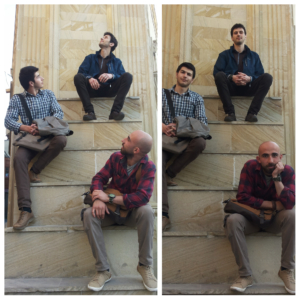
Nigyar, Masha, Ragib, Kyanan – we were all like one big family.
I successfully passed my Bachelors, passing not far off of top marks. I then decided to apply to do a Masters. I didn’t tell anyone at home so they wouldn’t be disappointed if I didn’t get in.
But I did and as soon as the list of successful candidates was released, I called my dad to tell him I was a Masters student. Father was so happy: “Oh you son of a bitch, why didn’t you say anything?” I told him I wanted it to be a surprise.
Surprises
Then I joined the army. The guys got me two books and I asked Mum to bring them to the swearing-in ceremony. When you’re in military service there’s almost no spare time, especially on the frontline, but I still tried to find time to read. One day our barracks were searched and my books were confiscated. I was very upset – they had been gifts after all.
At home, they knew that come March I would have a holiday and were expecting me after the 10th. But on my birthday, I was already home – and again managed to surprise them. They were so happy. It was a shame I couldn’t stay with them for longer. I had to go to the academy to sort out paperwork but also to finish some work I’d remembered about the whole time I was in the army. So I ended up spending most of my holiday in Baku.
When it was time to go back, Mum baked me enough cakes for the whole platoon. I left on 15 March. When I was saying goodbye to my father for some reason I quoted Kochetkov: “Take forever to say goodbye, when you leave even for a moment.” My father froze and Mum worried – “why would you say that?”
Mum in general is quite superstitious. And it turned out that a year ago, when I was in my fourth year, she had a dream in which I was shot, which stressed her out a lot. Her dreams had a habit of coming true. She only told my sister. I tried to calm her down when I was leaving: “It’s just pretty poetry, there’s really no hidden meaning to it all,” I said.
I spoke with them again on 29 March when I called to thank them for the delicious cakes. I told them not to worry, that everything was ok, and military service is all routine. That day I also talked to Zamik but didn’t manage to get through to my aunt or Sabina.
In the army, my best friend was Mushvig. We would write to each other when we were sent to different positions. Recently you could feel more tension on the frontline and all units were being sent forward. Answering a letter from Mushvig from 1 April, I asked him to be careful.
That night we got the order to advance. When the fighting began, the rain of oncoming bullets made it impossible to lift your head. The last thing I saw was the commanding officer, Hasrat Almazov, getting to his feet and screaming “Forward!” and we went to attack.
This article is dedicated to the memory of Samir Kachayev, killed in April 2016 during the so-called “Four Day War” and posthumously awarded the Medal for Bravery. It was written on the basis of recollections of his mother Atina Kachaeva, his father Ziyaddin Kachaev, his classmates Abid and Sadig and friends from the academy Zamik and Anar.
